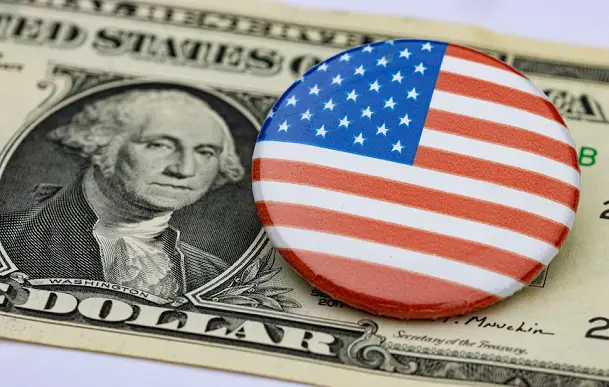A new report from Moody’s Investor Services ratings agency makes the case that the dominance of the US dollar in global trade and finance will continue for decades, despite the challenges the dollar presently faces, mainly since there are presently no viable alternatives.
In the note, Moody’s analysts wrote, “We expect a more multipolar currency system to emerge over the next few decades, but it will be led by the greenback because its challengers will struggle to replicate its scale, safety and convertibility in full.”
However the ratings service notes that the fact the dollar’s share of central bank reserves has been slipping for decades, as well as deepening geopolitical tensions driving a search for alternatives, are all issues which could threaten the dollar’s global dominance.
According to IMF data, the share of official FX reserves belonging to the dollar fell to 58%, marking a 20-year low during the fourth quarter of 2022. At the turn of the century, that figure stood at 78%.
The note added, “The greatest near-term danger to the dollar’s position stems from the risk of confidence-sapping policy mistakes by the US authorities themselves, like a US default on its debt for example,” said the report, which was issued before the debt-ceiling agreement was reached. “Weakening institutions and a political pivot to protectionism threaten the dollar’s global role.”
Moody’s went on to note that even if a default on US debt were to be rectified quickly, US Treasury holdings would be permanently damaged, as they would no long be risk-free assets.
The note went on, “Greater polarization in the domestic political environment over the last decade has weakened both the predictability and effectiveness of US policymaking. Sanctions further inhibiting the free flow of the dollar in global trade and finance could encourage greater diversification.”
The Biden administration and Republicans in Congress reached an agreement in principle to raise the debt ceiling for two years, while cutting some government spending. While the agreement would avert a catastrophic default on the nation’s debts, it still has to be passed through both houses of Congress despite opposition to various provisions within it from both sides of the aisle.
On Monday, the dollar was down, falling 0.25% vs the yen, amid the reduced appeal of the currency as a safe-haven. A measure of the dollar’s value against a basket of other currencies, the dollar-index, had also fallen slightly, to roughly 104.22.

